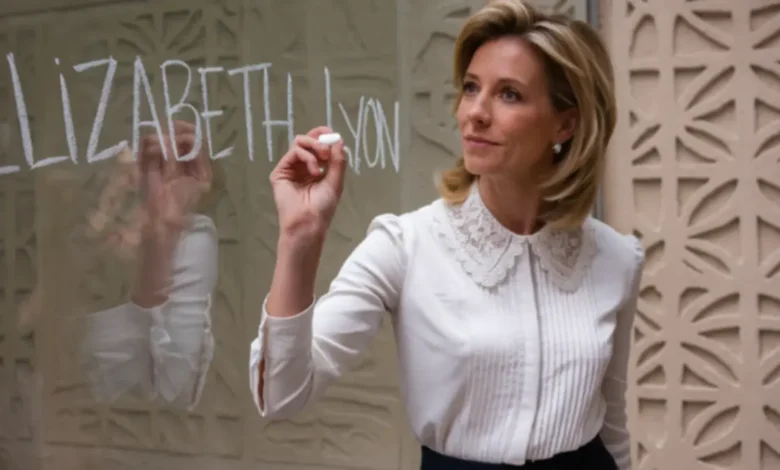Elizabeth Bowes Gregory The Life and Legacy

When we think of influential historical figures, names like Winston Churchill or Marie Curie often come to mind. However, countless individuals’ contributions have shaped our world in profound ways yet remain relatively unknown. One such figure is Elizabeth Bowes Gregory. While she may not be a household name, her life and work have left an indelible mark on various fields, from social reform to education. In this article, we’ll explore the multifaceted life of Elizabeth Bowes Gregory, her contributions, and the legacy she left behind.
Early Life and Background
Elizabeth Bowes Gregory was born in the late 19th century in a small town emblematic of the changing social landscape of the time. Growing up in a family that valued education and social responsibility, Elizabeth was encouraged to pursue her interests from a young age. Her parents, both educators, instilled in her a love for learning and a desire to make a difference in the world. This nurturing environment laid the groundwork for her future endeavors.
As a child, Elizabeth was known for her inquisitive nature. She often spent hours reading books about history, science, and philosophy, which sparked her interest in social issues. The late 1800s were a time of significant change, with movements advocating for women’s rights, labor reforms, and educational access gaining momentum. These movements profoundly influenced Elizabeth; her early experiences shaped her commitment to social justice.
Education and Early Career

After completing her primary education, Elizabeth pursued higher education at a prestigious university. She was one of the few women of her time to attend college, a testament to her determination and her family’s progressive values. During her university years, she excelled academically and became involved in various student organizations focused on social reform. This involvement honed her leadership skills and deepened her understanding of the societal issues that plagued her community.
Upon graduating, Elizabeth began her career as a teacher. She quickly gained a reputation for her innovative teaching methods and ability to connect with her students. Elizabeth believed that education was a powerful tool for social change, and she dedicated herself to creating an inclusive and supportive learning environment. Her passion for teaching was evident, and she often went above and beyond to ensure that her students received the best education possible.
Advocacy for Social Reform
As Elizabeth settled into her teaching career, she became increasingly aware of the social injustices that affected her students and their families. Many of her students came from disadvantaged backgrounds, and she witnessed firsthand the impact of poverty and discrimination on their lives. This realization ignited a fire, prompting her to advocate for social reform.
Elizabeth began to organize community meetings to address issues such as child labor, access to education, and women’s rights. She collaborated with local organizations and activists to raise awareness and push for legislative changes. Her efforts were not without challenges; she faced opposition from those who resisted change. However, Elizabeth’s unwavering commitment to her cause inspired many, and she became a prominent figure in the social reform movement of her time.
Contributions to Education

One of Elizabeth Bowes Gregory’s most significant contributions was her work in education reform. She believed that education should be accessible to all, regardless of socioeconomic status. To this end, she advocated for policies providing free education to underprivileged children. Her tireless efforts led to the establishment of several scholarship programs and community schools that aimed to bridge the educational gap.
In addition to advocating for access to education, Elizabeth also focused on improving the quality of education. She believed that a well-rounded education should include academic subjects, life skills, and critical thinking. Elizabeth developed innovative curricula emphasizing experiential learning, encouraging students to engage with their communities and apply their knowledge in real-world situations. Her approach to education was ahead of its time and has influenced modern educational practices.
The Impact of Elizabeth’s Work
Elizabeth Bowes Gregory’s work had an impact far beyond her immediate community. Her advocacy for social reform and education inspired a generation of activists and educators who continued her mission. Many of her students became leaders in their own right, carrying forward the values of social justice and equality that Elizabeth instilled in them.
Moreover, Elizabeth’s contributions to education reform laid the groundwork for future policies to create a more equitable educational system. Her ideas about inclusive education and the importance of critical thinking have been integrated into modern educational frameworks, making her a pioneer in the field. Today, educators and policymakers continue to draw inspiration from her work as they strive to create a more just and equitable society.
Personal Life and Challenges

Despite her many accomplishments, Elizabeth Bowes Gregory faced her share of personal challenges. Balancing her career and advocacy work with her personal life was no easy feat. Elizabeth often found herself torn between her responsibilities as a teacher and her commitment to social reform. Societal expectations of women compounded this struggle during her time, usually limiting their roles in both the public and private spheres.
Elizabeth navigated these challenges with resilience and determination. She found solace in her close-knit circle of friends and fellow activists, who provided support and encouragement. Together, they shared ideas, strategized on advocacy efforts, and celebrated each other’s successes. This camaraderie was essential for Elizabeth, allowing her to recharge and remain focused on her mission.
In her personal life, Elizabeth also faced the societal pressures of marriage and family. While she valued her independence and career, she was often expected to conform to traditional roles. However, she remained steadfast in her beliefs and prioritized her work over societal norms. This decision was not without its sacrifices, but Elizabeth understood that her contributions to society were her true legacy.
Legacy and Recognition
Elizabeth Bowes Gregory’s legacy is one of empowerment and change. Her work in education and social reform has had a lasting impact on countless individuals and communities. Several institutions and organizations have been named in her honor to recognize her contributions, ensuring that her name and work will not be forgotten. Scholarships, awards, and community programs continue to bear her name, reminding her of her commitment to social justice and education.
Moreover, Elizabeth’s story has inspired many to pursue careers in education and advocacy. Her life serves as a testament to the power of one individual to effect change and challenge the status quo. As we reflect on her contributions, it is essential to recognize the ongoing relevance of her work in today’s society. The issues she fought for access to education, social justice, and equality remain critical challenges that resonate with new generations of activists.
Conclusion
In conclusion, Elizabeth Bowes Gregory may not be a household name, but her impact on education and social reform is undeniable. Her dedication to creating a more equitable society and her innovative approaches to teaching have left a lasting legacy. As we continue to navigate the complexities of our world, let us draw inspiration from Elizabeth’s life and work, striving to uphold the values of justice, equality, and education for all. Her story reminds us that change is possible and that each of us has the power to make a difference in our communities and beyond.
Q1: Who was Elizabeth Bowes Gregory?
Answer: Elizabeth Bowes Gregory was an influential educator and social reformer in the late 19th and early 20th centuries. She dedicated her life to advocating for social justice, access to education, and the rights of women and children.
Q2: What were Elizabeth Bowes Gregory’s main contributions?
Answer: Elizabeth’s main contributions included pioneering reforms emphasizing inclusivity and experiential learning. She also played a significant role in advocating for social reforms, such as child labor laws and women’s rights, helping to create a more equitable society.
Q3: How did Elizabeth Bowes Gregory impact education?
Answer: Elizabeth impacted education by developing innovative curricula that focused on critical thinking and life skills. She ensured that education was accessible to all, especially underprivileged children. Her advocacy led to the establishment of scholarship programs and community schools.
Q4: What challenges did Elizabeth Bowes Gregory face?
Answer: Elizabeth faced challenges balancing her career and advocacy work with societal expectations of women during her time. She often struggled with the pressure to conform to traditional roles while remaining committed to her social reform and education mission.
Q5: What is Elizabeth Bowes Gregory’s legacy?
Answer: Elizabeth Bowes Gregory’s legacy includes her lasting impact on education and social reform, inspiring future activists and educators. Institutions and programs named in her honor continue to promote her values of justice, equality, and access to education.
You May Also Read
Mary Marquardt The Life and Legacy
Exploring Cristina Invernizzi: Art, Culture, and Influence
Who Is Nieku Manshadi? Everything You Need to Know




